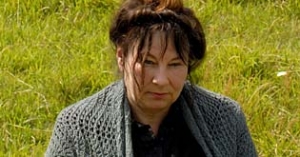Biography
Yolande Moreau, born February 27, 1953, in Bruxelles, initially worked as a child care worker and at a children’s theater in Bruxelles – until she decided to start a career as an actress herself. She studied acting at the well-known drama school Ecole Jacques Lecoq and celebrated her first success on stage with the one-person drama "Sale affaire du sexe et du crime" that she had also written herself. She performed the play not only in Belgium, but also in Switzerland, in France, and in Québec, Canada. Moreau was then discovered by the Belgian director Agnès Varda who gave her supporting roles in a short film and also in the drama "Sans toit ni loi" ("Vagabond", 1985).
But Moreau did not gain a foothold in the film business until 1989 when she became a member of a group of dead pan comedians who made their audience laugh with poetic, yet humorous sketches without ever smiling themselves. Soon, Moreau became one of the most striking actresses of the group that had its own time slot on the French pay-TV channel Canal Plus. The success of her performances made Moreau famous and from 1992 on she made more and more appearances on the movie screen, for instance, in "Le Bonheur est dans le pré" ("Happiness is in the Field, FR 1995) or "Le Hussard sur le toit" ("The Horseman on the Roof", FR 1995) – but mainly in smaller supporting roles.
In 2001, she made her final breakthrough on the movie screen in a striking supporting role in the multiple award-winning box office hit "Le fabuleux destin d"Amélie Poulain" ("Amelie from Montmartre"). In the film, she played a lonely, widowed concierge.
In 2004, Yolande Moreau made her debut as a director with the film "Quand la mer monte…" ("When The Sea Rises") that was co-directed by Gilles Porte. The romantic drama won the César, the French film award, in the categories "Best Actress" (Moreau) and "Best First Work", among other awards.
Moreau played another highly-praised leading role in Martin Provost’s film "Séraphine" (BE/DE 2008). Her portrayal of the seminal artist who went insane during the 1940 won Moreau a nomination for the European Film Award, as well as another César Award and several other festival awards.
